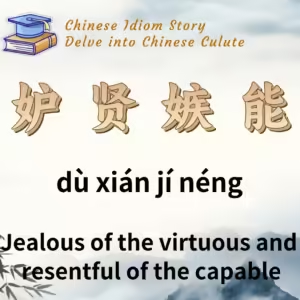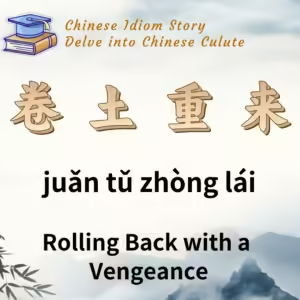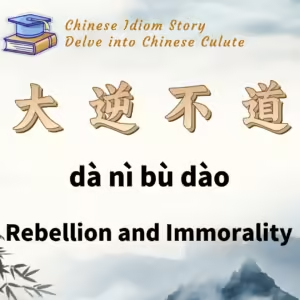
Chinese Idiom: 妒贤嫉能 (Du Xian Ji Neng)
English Translation: Jealous of the virtuous and resentful of the capable
pīn yīn: dù xián jí néng
Idiom Meaning: This idiom refers to the jealousy or resentment directed toward individuals who possess good character and abilities. It highlights the negative consequences of being envious of those who are talented or virtuous.
Historical Source: The idiom originates from Shiji (《史记》)
Idiom Story:
In 202 BC, after the defeat of Xiang Yu at the Battle of Gaixia, he was forced to commit suicide at the Wu River. Following this event, the various lords and ministers convened to discuss the coronation of Liu Bang, who became Emperor Gaozu of the Han Dynasty. On the third day of the second month, Liu Bang ascended to the throne at the banks of the Fei River (an ancient river located in modern-day Shandong) and established the capital in Luoyang.
During a banquet held at the South Palace, Liu Bang asked his lords and generals to speak openly about why he was able to achieve the throne while Xiang Yu had lost it. He urged them not to hold back, seeking genuine opinions on the matter.
Wang Ling, a fellow countryman of Liu Bang, and another general, Gao Qi, responded, explaining, “Your Majesty, you may be arrogant and scornful towards others, but Xiang Yu is benevolent and kind. However, while you reward those who conquer cities and share the benefits with everyone, Xiang Yu is jealous of those who are virtuous and capable. He harms those who achieve merit and distrusts the wise, failing to reward victories and share the spoils of war. This is why he lost the world.”
Liu Bang was not fully satisfied with this explanation and elaborated further, saying, “You only see part of the truth and not the whole picture. Zhang Liang is adept at strategy; Xiao He knows how to govern and soothe the people, ensuring their needs are met; Han Xin excels in military affairs, winning every battle and campaign. I was able to employ these outstanding talents, which is why I succeeded. Xiang Yu had Fan Zeng, a talented advisor, but he did not utilize him, leading to his downfall.”
This indicates that Xiang Yu’s failure stemmed from his unclear system of rewards and punishments, his jealousy of the capable, and his inability to recognize and employ talent.
As a result of this story, “妒贤嫉能” became a widely recognized idiom, representing the dangers and foolishness of being jealous of talented and virtuous individuals.






